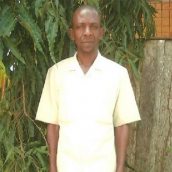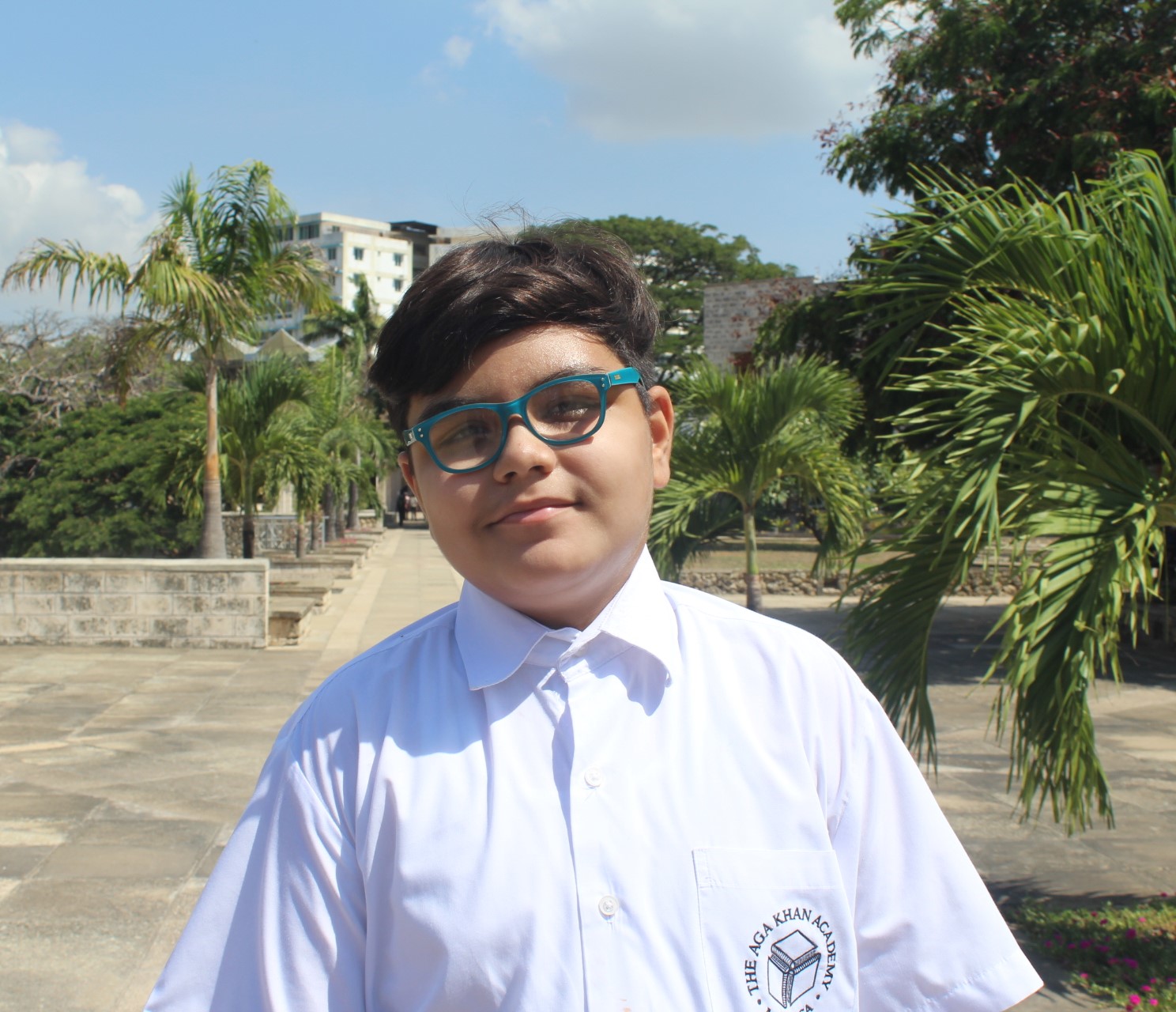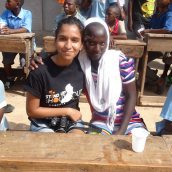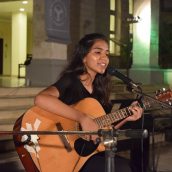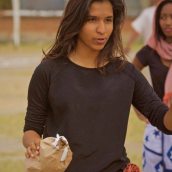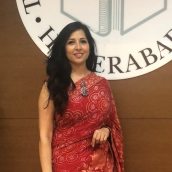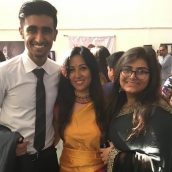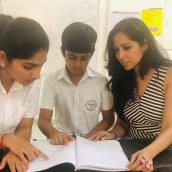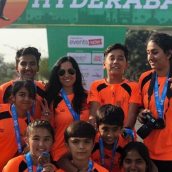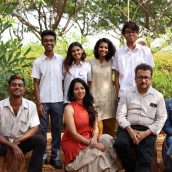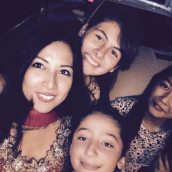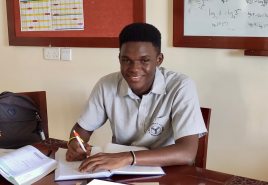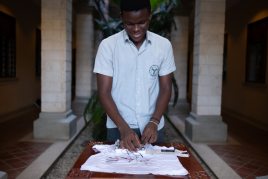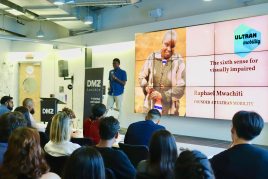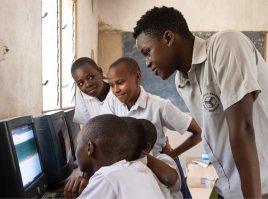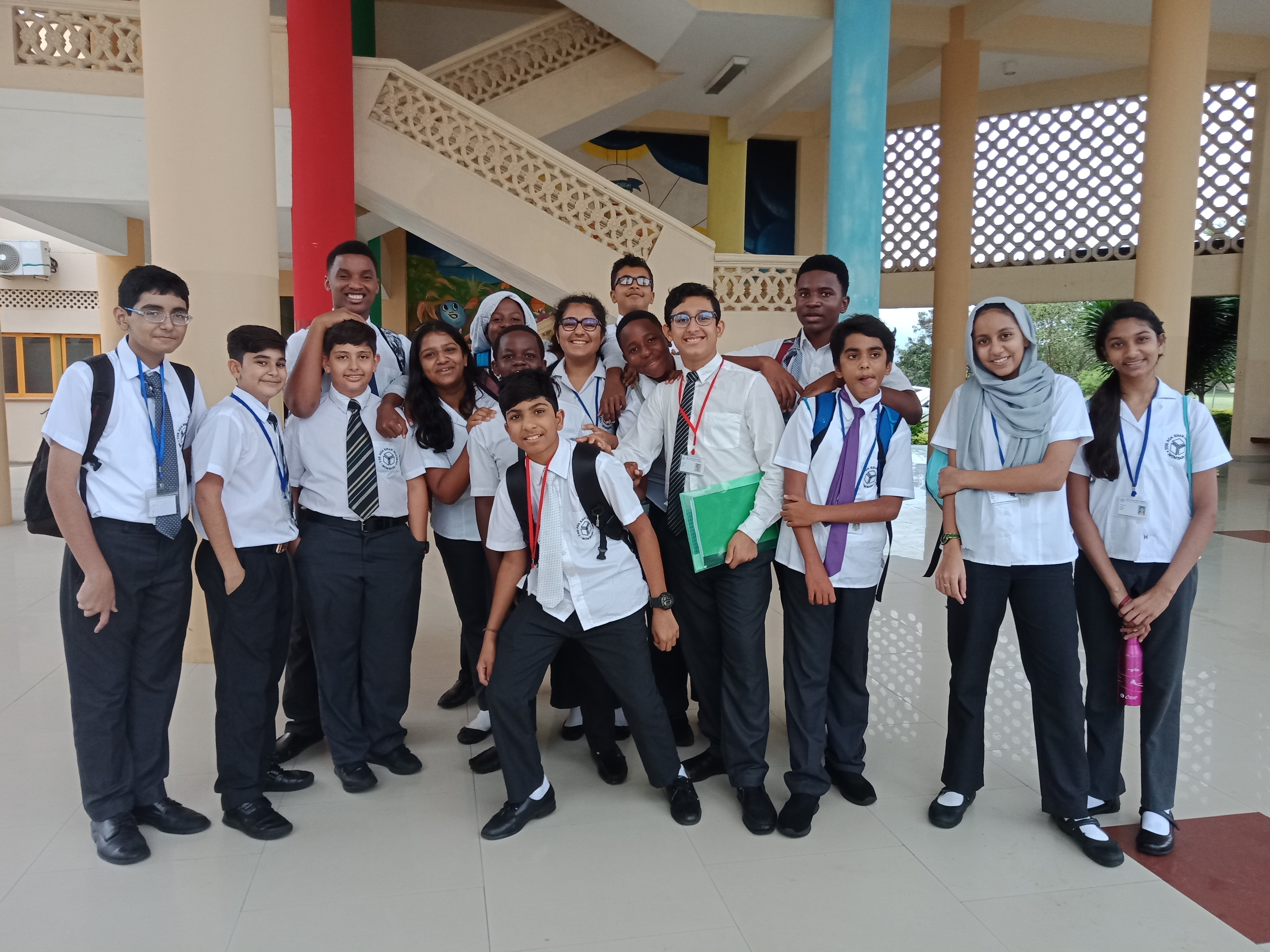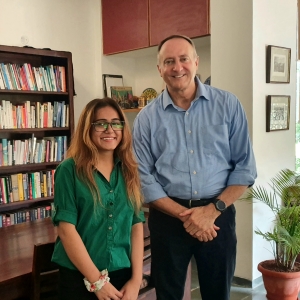Participants of the AKA Outreach Programmes
Said Mwabeha: Sparking a Light in Students by Transforming School Leadership
Said Mwabeha became a teacher in 1990. He was drawn to the profession because it provided an opportunity to positively impact a range of people. “Almost everyone on earth,” he explains, “be it a president, be it a doctor, be it an engineer—all of them pass through a teacher. So, to me, a teacher is a very important person.”
Mwabeha aspires to spark a light in others through his teaching and says the Professional Development Centre at the Aga Khan Academy in Mombasa has enhanced his ability to do so. As the Head of Vuga Primary School in the coastal area of Kenya, Mwabeha attended a course focused on Leadership Management at the Academy.
“It really transformed me,” Mwabeha says of the course, which dealt with how Heads of School could make better use of their resources to enhance academic performance. While he previously undertook initiatives to improve the school as a “one-man shop”, he now takes an integrated approach to solving problems that involves a range of teachers, parents and students.
The Academy’s programme also spurred the creation of an association of teachers in Kwale County, where Vuga Primary is located, at the end of 2012. As Chair of Kwale Educational Leaders' Association, Mwabeha is leading teachers from 23 schools in formulating a strategic roster of activities to strengthen their academic performance. Their strategy is two-pronged. On the one hand, they plan to undertake workshops and other initiatives to improve pedagogy. On the other, they are organising awareness meetings and conferences for parents and teachers to discuss the importance of education. They hope to overcome the challenges and problems created by families that do not prioritise education.
Meanwhile, inside the classroom, Mwabeha is working hard to spark intellectual curiosity in his pupils. After receiving training in pedagogy at the Academy, he has promoted the use of more participatory teaching methods, both in his own classroom—where he teaches Social Studies and Religion courses to students in grades 4, 6 and 8—and in those of his colleagues. “It gives [the students] an opportunity to explore more and to discover more by themselves,” he explains. He previously spent the majority of classroom time lecturing, as is common in Kenya, but finds that facilitating class discussions is more fruitful.
By Alia Dharssi
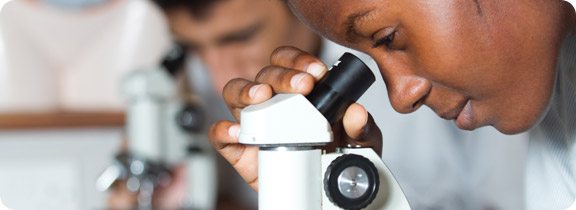
Admissions Forms to Download
If you are having difficulty accessing our online enquiry service, you can also download the package and forms here.
Age requirements
Please see the age requirements that will apply over the following years for entry to the Academy.
2012-13 2013-14 2014-15 2015-16 2016-17
Junior School
Years 1–6: Primary Years Programme
Students entering year 1 should have completed at least three years of Nursery School and must be 6 years of age by 31 December of the year of entry.
All prospective students must demonstrate a potential for high academic achievement and demonstrate competency in literacy and numeracy. Each applicant from year 2-5 must sit a standard assessment in logic, English (reading and writing), mathematics and creativity and supplemented by personal interviews with key members of the Junior School staff.
Senior School
Years 7–10: Middle Years Programme
All students applying for a place in the Senior School must have attained high scholastic achievement in their former educational institutions. They must also demonstrate a keen interest and participation in community service projects outside the classroom and/or extracurricular activities such as sporting activities, clubs, arts and music.
All applicants must schedule an appointment for a standard assessment test in logic, English, mathematics and problem-solving at the school in addition to providing past student grade reports and certificates of achievement. Applicants will also have personal interviews with key members of the Senior School staff as part of their application process.
Diploma Programme
Years 11–12: Diploma Programme
Applicants for the International Baccalaureate (IB) Diploma Programme at the Aga Khan Academy Mombasa must have demonstrated outstanding academic achievement (with a minimum of an average B grade from their current school) as well as a proven record of civic mindedness and participation in community projects.
The application process requires prospective students to undergo a standardised assessment test in English, mathemathics and logic as well as an interview with IB Diploma Programme coordinators and key members of Senior School staff.
New students will not be accepted in the second year of the diploma programme.
Academy tours are held regularly throughout the school year. For more information about applying to the Academy, please contact the admissions office. You can call the admissions team on their direct lines: +254 (0) 736 200 008 or +254 (0) 733 121 927.
Naail Lakhani: Learner Agency Through Coding
Naail Lakhani, a Year 5 student in Junior School, has demonstrated incredible maturity, leadership, and initiative since joining the Aga Khan Academy Mombasa in 2018. His proudest achievement is founding the Junior School Coding Club, an after-school extracurricular activity to teach coding to young minds. With approximately 30 members, Naail has been running the club successfully for over a year now.
Naail developed his passion for coding at the beginning of COVID-19 pandemic. “One day, I decided to search up easy coding for kids, and I stumbled upon this great website called Khan Academy which taught me different programming languages like C++ and Javascript,” said Naail. “I was then approached by Ms. Nuala Alibhai, the Head of Student Support and well-being in Junior School, who knew about my interest in coding and proposed the idea of starting a club in school. I agreed, and the coding club was born.”In addition to teaching coding skills, the club encourages its members to develop learner agency - shifting ownership of learning from teachers to students. "I believe that learner agency is important because it allows students to build their critical thinking and problem-solving skills, as well as perseverance and adaptability," Naail said. Members of the club attain learner agency by practicing coding rather than just learning it so that they can have the opportunity to apply their knowledge and test their understanding.
“I have been a part of the coding club since it first began, so for over a year now, and I have loved every minute of it,” says Kanika Tahiliani, a student in Year 4. “I learnt how to make shapes and add color to different objects like foods and a snowman using code.”
As Naail transitions to Senior School, he plans to continue and expand his club. By increasing the club’s capacity and opening up the club to both Junior and Senior School, Naail hopes to inspire more students to pursue coding. “My coding club is just the beginning,” said Naail. “I can already see myself working in tech companies like Google when I am older, or maybe I can even start my own company.”
Arzoo Rajpar: Making her dreams a reality
The 2017 – 2018 academic year will be my fourth and final year at the Aga Khan Academy in Mombasa. As I approach graduation in June 2018 and reflect on the person I was when I joined the Academy from Dar es Salaam, Tanzania, I am grateful for how much I have grown as an individual and the opportunities I have been able to access.
Through the Academy I have made many of my dreams a reality. I created a project to advocate for the rights of people with albinism in Tanzania, I have ameliorated my skills within the arts, I have coordinated a youth organisation, and most importantly I am a leader and work hard to have a positive impact on my peers.
I am extremely passionate about fighting for the rights of people with albinism in Tanzania. I have always wanted to do something to help the disadvantaged and underprivileged within my community, and I was first able to do so at the Academy in Mombasa. In Year 10 I filmed a documentary for my Personal Project raising awareness about the stigma and plight surrounding persons with albinism, with an aim to educate both the Tanzanian and Kenyan communities on this issue. I continued fighting for this cause through my TEDx talk at the Academy called “Souls Worth Living Too” where I spoke about the issue and my project, encouraging others to take action as well. This was a huge step for me, and the talk was shared on the official TEDx YouTube page.I chose to continue this project through my Extended Essay, investigating the way in which the discrimination of people living with albinism in Tanzania affects their level of development. The experience I had while conducting research was eye opening. Although change has been made over the years the Tanzanian community still has a long way to go. I want to continue this project in a more artistic and service-oriented way once I graduate this academic year. I plan on doing so mainly through photography and film projects as well as confidence training, awareness and literacy programs.
Furthermore, the Academy has given me the opportunity to carry out other projects for causes I am equally passionate about such as women’s rights and feminism. I am currently the Director of a youth organisation called Stand Up Shout Out (SUSO) Mombasa which carries out several projects in areas such as the environment and education. This year I created a new project known as “Stand Up Shout Out Against Rape Culture Campaign”. Our first event was a Mombasa-wide conference in which students from different schools and socio-economic backgrounds came together to discuss this issue and provide potential solutions. This was a dream come true for me as I was able to create a project to tackle this issue that is deeply rooted within our communities and often disregarded. Before I graduate and in my capacity as Director I would like to complete the SUSO Feed A Soul Khadija Library project, where we are building a library for the children of Khadija Primary School. Music is also an area that I am deeply passionate about. Although I grew up in a musical family, I was able to grow tremendously as a musician once I joined the Academy. In addition to being an active member of the school choir, I write my own music and perform both inside and outside school. Being part of the school choir has allowed me to acquire more skills and to become a stronger singer and musician. Most importantly it has boosted my confidence and allowed me to encourage other musically-talented students to explore music and to help them grow in this area. There is nothing more rewarding than assisting someone in developing their ability to express themselves, to show their passions and to produce art. Music is a huge part of my identity, and at the Academy, I have been able to foster this part of myself.In Diploma One [first year of the Diploma Programme], I was the Student Council Expression Representative. This role was extremely fulfilling and greatly contributed to my personal growth. I ensured that I would use my position to do the most and the best for the student community at the Academy in Mombasa. I pushed myself to come up with different and innovative ideas, and create opportunities that allowed students to express their talents and passions. Some of the projects and events I introduced include a Musical Theatre enrichment, a Coachella Festival aimed at allowing students to share their talents in visual and performing arts as well as music.
Following this, I was elected as Student Council President for the 2017 – 2018 academic year. Through this opportunity, I have gained new skills and been exposed to new experiences. As President I feel as though it is my duty to be approachable, relatable and a friend to every student in the school. I want to ensure that the student body is able to express their thoughts, that individuals are able to grow in different aspects of their lives and that every student finds their passion within the Academy.
Being a part of the Aga Khan Academy Mombasa community has allowed me to grow tremendously, to express my talents and passions, to fight for what I believe in and to have a positive impact on those around me. Through the various activities in which I have participated and the leadership positions that I have held, I believe that I have discovered my identity and what I want to achieve in my life. I intend on pursuing architecture, a discipline that will allow me to combine my love for art, my intellectual interests as well as my long term goal to serve my community in Dar es Salaam, Tanzania.Although I have chosen a career path, I will continue to do music, photography, film, visual art as well as community and service due to the fact that these are all areas which form my identity and that I am passionate about.
I am very grateful for the lessons and education I have received and believe that the Aga Khan Academy in Mombasa has equipped me with the skills and experiences to achieve my long term goals.
By Arzoo Rajpar
Faridah Lakhani - epitomising self-learning and personal growth
Written by Kamini Menon
Raphael Mwachiti: Using technology to advance the community
When Raphael Mwachiti, a Diploma Programme (DP) student, got admitted to the Aga Khan Academy Mombasa on a fully funded scholarship through the Talent Identification Programme (TID) in 2015, he knew it was a life-changing opportunity.
“I was thrilled and filled with joy that I got to see my parents be proud of me for getting the admission but I also understood that it was now up to me to make use of the resources and support from the Academy to make something of myself,” Raphael says.
After five years at the Academy, he says his experience feels like a great adventure, one he had never thought of undertaking.
“I got to see different perspectives and meet people from different backgrounds,” Raphael says. “I’ve also been able to go to new places like Canada and Tanzania and learn many new things.”
Although he hit many bumps along the road, he says they’ve helped him grow as an individual and have given him a glimpse of the world to better prepare him to be an active member of his community.
Raphael has not only had outstanding achievements in the classroom but has applied what he’s learnt to effect change outside the classroom. He has embraced the ethos of the Academy by striving to improve the lives of others.
In 2019 he won the Ryerson Sandbox Basecamp prize for his innovation to aid the visually impaired. He was awarded a grant of $5,000 CAD and specialist professional advice to help advance his start-up. He is now working to produce these devices for further testing with the hope of impacting more than 250,000 visually impaired persons in Kenya.Additionally, Raphael helps farmers in his rural home of Kinango learn new farming techniques like greenhouse irrigation and composting, which are now being utilised to help increase harvest in all seasons thus increasing sustainability within the community. He also teaches computer skills to kids in his old school, which has evoked an interest in technology within them.
"I first met Raphael when we were doing the Talent Identification testing in October 2014,” says Dean of Admissions Paul Davis. “We sat outside one of the classrooms at St. Joseph's Primary School in Kinango. The first thing I remember asking him was whether he was emulating the great Italian artist. He mentioned that the name came from his dad, who was an artist and painted local wildlife and scenes to sell to the tourists in his shop in Ukunda."
"What I admired about Raphael at that time as well as his intellectual capacity was his honesty," said Paul. "He said that the most difficult moment he had to deal with was when he saw a child selling charcoal in Kinango and not going to school; he had reported it and the child was given free education. In a personal story he had written he mentioned a story about rescuing a child from a house on fire - when I asked about this and whether this had really happened, he admitted that it was not true and he had been told to write this by his teacher - he said he knew at the time that he should not be writing this and felt uncomfortable doing so. I had a feeling then that if we chose him he was going to be a self-driven and principled leader. I am pleased to see that these initial feelings were correct and he has turned into a fine ambassador for the Academy".
After being at the Academy for the last five years, Raphael now feels an even stronger responsibility to give back to his community and society at large. “With this understanding, I believe that the next wave of leaders coming from the Academy will be the foundation of positive change in the world,” says Raphael.
Watch Raphael's story, which is featured on the Aga Khan Development Network:
